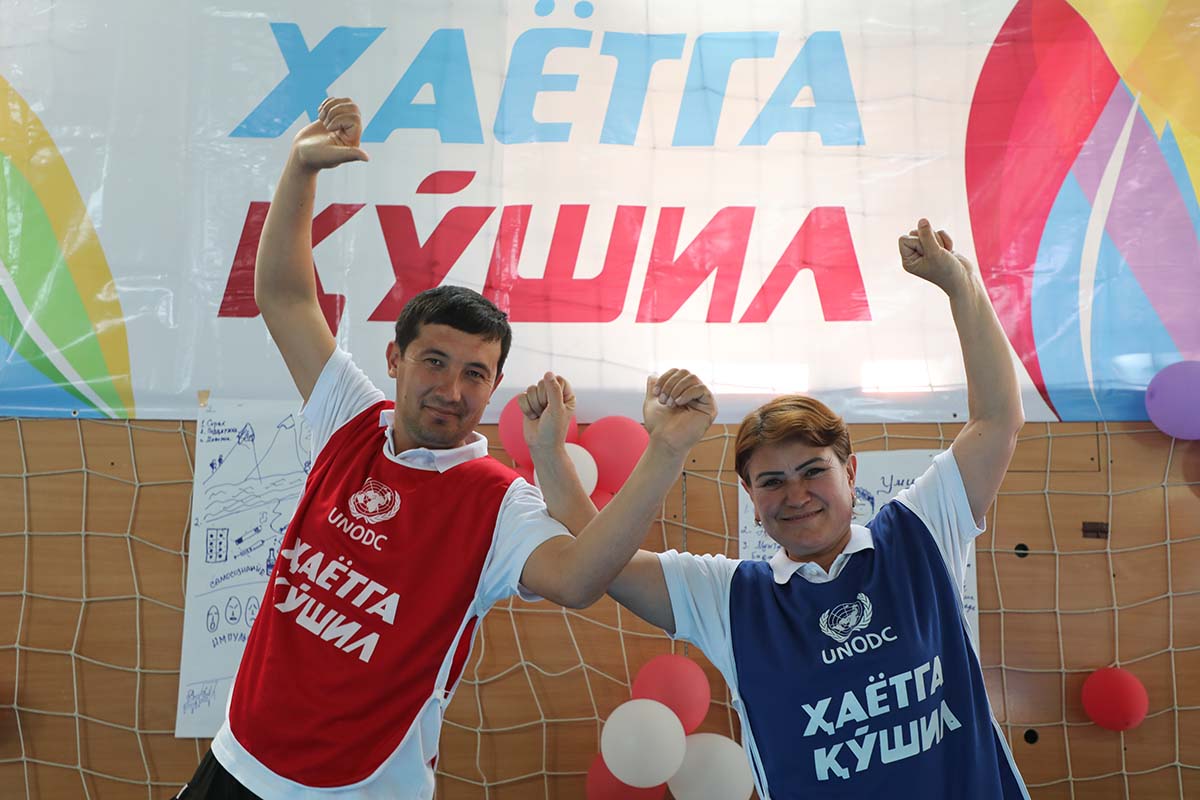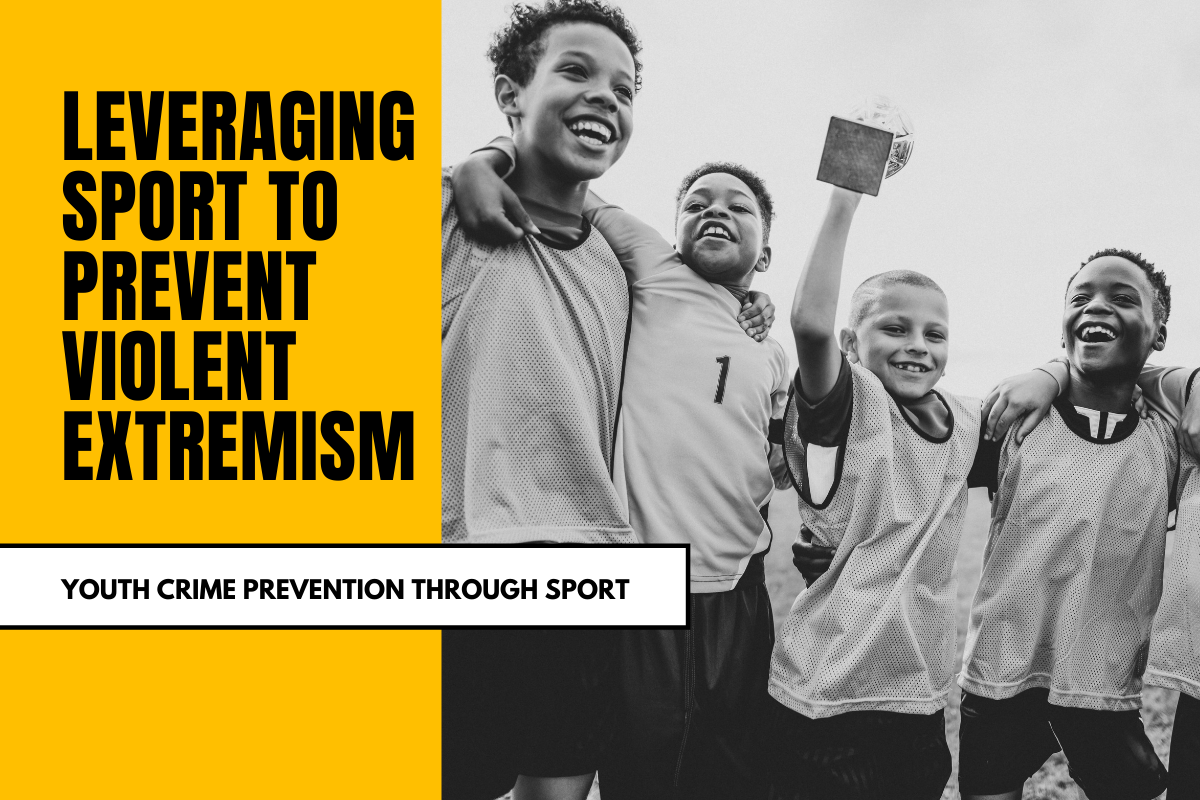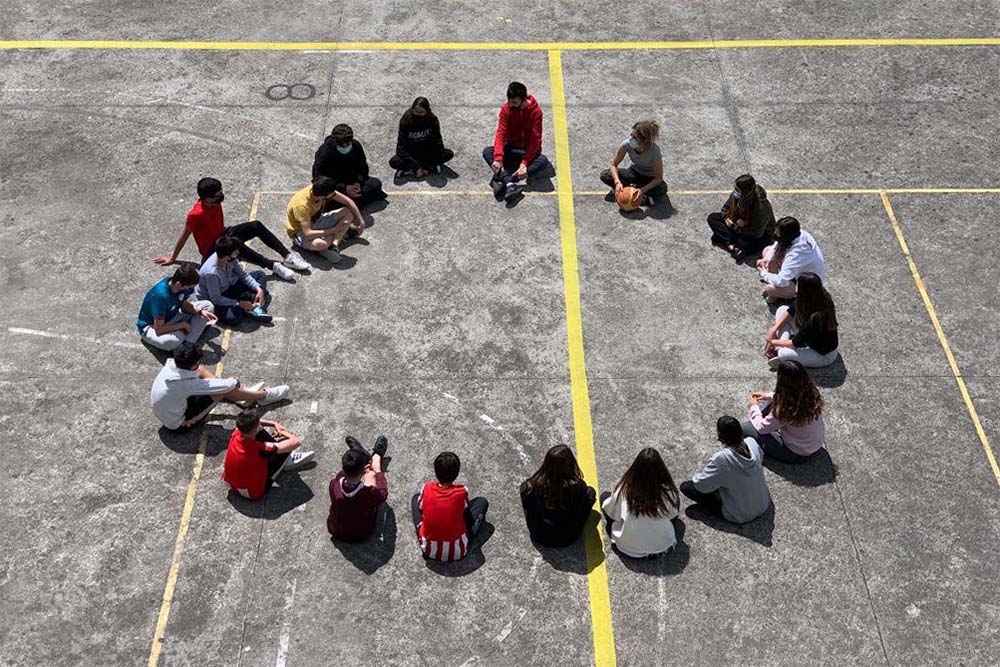UNODC and OSCE, jointly teaching sports and life-skills in South East Europe

30 May 2019 - The practice of sports is receiving increasing attention as a powerful tool for crime prevention, especially in dealing with the younger generation. For UNODC's Global Programme for the Implementation of the Doha Declaration, Youth Crime Prevention through Sports has been an active component since 2016, promoting holistic crime prevention policies and raising awareness on the importance of sports-based activities; they aim at keeping youth away from crime and teaching them life skills to help them deal with their circumstances.
As with its various components promoting a culture of lawfulness, UNODC partners with other international organization around the world, and its cooperation with the Organization for Security and Cooperation in Europe (OSCE) builds on the Joint Action Plan for 2018-2019. This includes the joint promotion of the two organizations' technical tools in the field of strengthening and improving crime prevention, which is currently being rolled out in South Eastern Europe.
 To this end, in consultation with UNODC, OSCE recently organized a round table discussion in Serbia, engaging regional policymakers. The meeting brought together representatives from ministries of education, ministries of sports and youth, ministries of interior, and other state authorities working in the area of public safety and policing; they exchanged experiences and good practices in their respective domains using sports-based prevention, discussing challenges and ways to address them through joint action.
To this end, in consultation with UNODC, OSCE recently organized a round table discussion in Serbia, engaging regional policymakers. The meeting brought together representatives from ministries of education, ministries of sports and youth, ministries of interior, and other state authorities working in the area of public safety and policing; they exchanged experiences and good practices in their respective domains using sports-based prevention, discussing challenges and ways to address them through joint action.
For Ambassador Andrea Orizio, head of the OSCE Mission in Serbia, "that event clearly showed the genuine interest and the commitment of all parties to do more in this area, and to co-ordinate the efforts at both national and regional level."
This meeting was followed up this month in Belgrade by a joint Regional Training of Trainers on the Global Programme's Line Up, Live Up curriculum and methodology. Engaging 19 sports trainers from five South Eastern European countries (Serbia, Bosnia, North Macedonia, Albania and Montenegro), the training familiarized them with the programme before they piloted it locally, with OSCE support.
Participants were enthusiastic about the training and the programme's tools to help youth. Silvia Mitevska, who teaches sport-based programs aiming at empowering girls in North Macedonia ,said this training had helped her think outside the box of their sport regimen: "It helps coaches to see sports as a platform, as a tool to work with youth at another level and to teach them important life skills, like respect, tolerance, and decision making and goal setting." Ms. Mitevska also noted with interest the programme's focus on promoting gender equality: "I work at the local level on leadership and empowerment for girls, and I know how sports-based initiatives like Line Up, Live Up can help girls build self-confidence and esteem, which are so important for their development."
Ivan Djokovic, a public -school teacher in Serbia who also runs his own basketball sport club for youth, commented on the quality of the training of the trainers and on the solid methodology of Line Up, Live Up: "This training is excellent; it is delivered in a very professional manner, which I really appreciate. I have a lot of experience working with youth on sports for prevention, but it is the first time I deal with such a specific training curriculum and methodology ."
As noted by Ambassador Orizio in his opening address, the Line Up, Live Up initiative builds on OSCE's previous and ongoing youth engagement work in the region, such as its "To success, together" project in Serbia which tackles risky behaviour among schoolchildren through sport and education.
Various UNODC initiatives in the region have also promoted crime prevention and tackled drug use, underlying the necessity of synergies in programmes addressing common risks and protective factors for youth, and building up their resilience.
UNODC's Regional Project Officer in Serbia, Milos Stojanovic, explained that there was a shift from "say no to drugs" programmes and information sharing sessions, to more structured programmes and strategies such as Line Up, Live Up, whose main goal is to develop relevant skills to rebuff drug use and prevent risky behaviour which includes drugs and crime: "I believe this programme is an excellent answer to the challenging situation that young people are facing today, especially as it gives them something that is very interesting for them while it teaches them new protective skills."
Additional information
Youth Crime Prevention through Sports
Line Up, Live Up Training Manual


